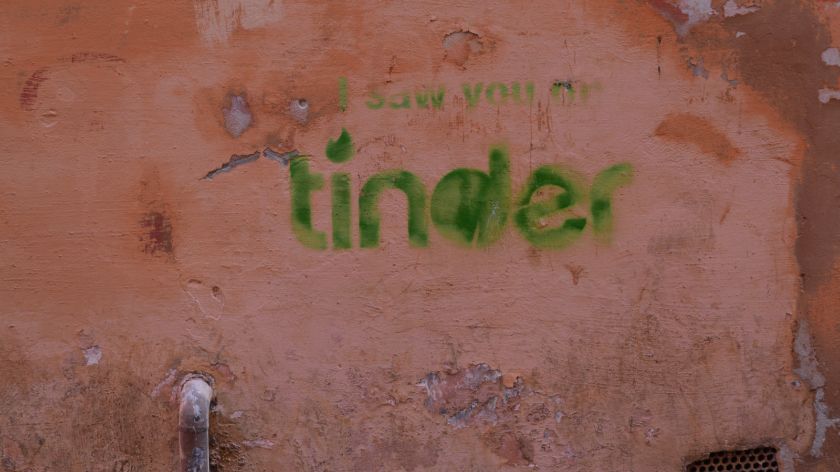The ethics of dating apps
-
 Photo: Chany Crystal, Creative Commons
Photo: Chany Crystal, Creative Commons
When moving to a new city, many students rely on dating apps to meet new potential partners. But how can they be sure, if at all, that the person on the other side of the screen is not deceiving them? And how does a dating app influence how we see ourselves? ‘The very design of a dating app might force us to give up certain information and act against our best interest.’
Every study year brings new students on campus and into the city, and, with them, prospects of new experiences, new friends, and – at least for some – new dates. While the orientation week is the perfect opportunity to meet new people, many students still rely on dating apps to find a match. But despite their popularity, there is no guarantee that the person at the other end of the screen is who they say they are.
That the attempt to find love on dating apps can backfire has been highlighted in popular documentaries like Netflix’s The Tinder Swindler. But how trusting are students really of dating apps like Tinder, Bumble and co. – and what is the appeal of an app when you can’t be sure who’s behind the screen?
Safety measures
‘I believe that people are inherently good’, says 22-year-old Radboud student Sanne*. During the pandemic, she used Tinder for a while. But she wasn’t entirely trusting of the person behind the screen. ‘I didn’t know the real identity of the person I was chatting with and I was definitely a bit more hesitant to meet up with someone I didn’t know in person.’
‘I didn’t know the real identity of the person I was chatting with’
‘Of course, there are shady people on dating apps’, says Kim*, a 23-year-old Radboud student. Although she never had bad experiences on the apps she had been using, Tinder and Bumble, she admits that she tendentially stuck to people she already knew or to someone with a familiar face. ‘I think it’s generally a good idea to take some precautions when meeting up with someone new, like picking a public place or asking someone to share their other social media with you, so you can ask a friend if they recognize the person you matched with.’
Identity-check
For Tim*, dating apps Grindr and Tinder have been an easy (and maybe the only possible) way to meet people during lockdown. But despite having many good experiences, the 20-year-old has also experienced the darker side of the platforms: ‘I received a private call from someone who sounded a lot older than the people I usually talked to, asking where I was. I didn’t feel safe at home for a while after that.’
Because of his experience, Tim is taking precautions when meeting up with matches, including asking people to send a picture of their face with a clock in the background as a sort of identity-check and making sure that a roommate or friend is aware of the date. ‘I’m also always making sure that the other person knows that I’m trans before the date, because even in the queer community, it’s not always safe to tell people in person.’
‘I received a private call from someone who sounded a lot older than the people I usually talked to, asking where I was’
According to Fleur Jongepier, assistant professor of digital ethics at Radboud University, we know that we are putting ourselves at risk by sharing so much of ourselves on dating apps. But it’s up for debate whether sharing this amount of information is always an entirely free choice. ‘The very design of a dating app might force us to give up certain information and act against our best interest’, she says.
While Jongepier considers online manipulation to be metaphysically similar to real-life manipulation, people tend to feel more powerless when they are manipulated online. ‘In my opinion, that happens because people don’t know how to respond appropriately to this kind of manipulation.’
Self-knowledge
Additionally, dating apps might have an impact on a person’s self-knowledge. Dating apps work with algorithms that stir us into being attracted to some people instead of others. However, an important component of self-knowledge is acknowledging our own desires. Dating apps heavily influence our desires by presenting us with a certain selection of possible matches, thereby influencing what we should desire. In this way, they make it hard for us to understand what we really desire – independent from what the app or society might tell us.
With the introduction week in full force and an apparent end of lockdowns in sight, students might opt for more real-life rather than online dating in the future. The ethical questions surrounding dating apps, however, remain. And online deception – whether on a dating app or elsewhere on the internet – continues to be an issue.
* For privacy reasons, the article does not use the real names of the students. The names are known to the Vox editorial office.



